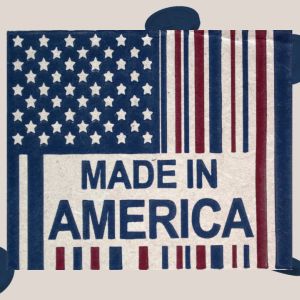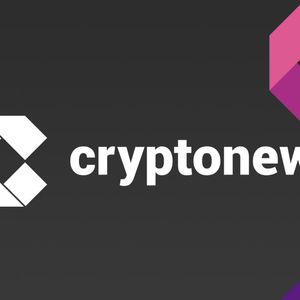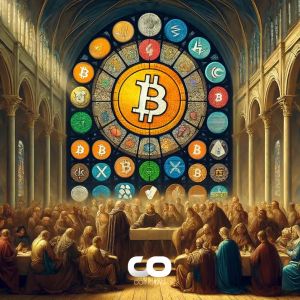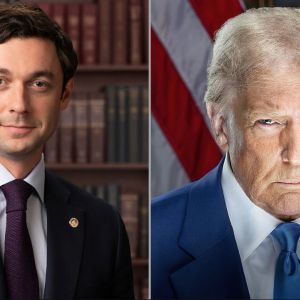Crypto is showing signs of being increasingly American, from mining Bitcoin to raising VC funding for token projects. Now, the ‘Made in USA’ label is becoming ubiquitous, used to hype new tokens. The recent crypto-friendly messages from Donald Trump set up expectations that crypto would go mainstream. To inspire more confidence, the ‘Made in USA’ label is getting attached to both old and new projects. Crypto advocates have also been nominated as advisors to the upcoming US presidential administration, further shifting the focus toward the positive crypto climate in the USA. Even in previous bull markets, coins and tokens exposed to the US market have rallied ahead of the pack. Even with years of increased regulatory scrutiny, tokens on the US market at least proved their resilience, and some of the bad projects were filtered out. In 2025, a wave of new projects may be coming, each labeled ‘Made in USA’, ranging from established blue chips to new Pump.fun tokens. Some consider Coinbase’s Base chain to be the source of vetted US tokens, despite the international access. Did you know every token created on @base is made in the USA? — 0xSEC (@0xSEC69420) January 16, 2025 For US-based investors, fully transparent and compliant coins are more attractive, as there are no fears of cease and desist orders, and no fears of delisting for regulatory problems. XRP leads ‘Made in USA’ rally Even after years of running lawsuits against the SEC, XRP became the leader of the new list of ‘Made in USA’ coins and tokens. The initial list of legacy projects is a selection of 70 coins and tokens, including top L1 with an innovative structure. Crunchbase lists a total of 2,965 companies with cryptocurrency as their main business, with most founded as far back as 2018. The list includes Avalanche (AVAX), Cardano (ADA), Chainlink (LINK), Polkadot (DOT), Near Protocol (NEAR), ACP, and others. The tokens with US-based founders or financing include the leaders in multiple categories, from AI infrastructure to DeFi, GameFi and legacy mined coins like Litecoin (LTC) and Dash (DASH). The Trump family’s own DeFi token World Liberty Financial (WLFI) is still not in the list, as the asset is not transacted or traded, while still in the presale stage. Even NFT projects like Pudgy Penguins reminded users their physical good production is based in the USA. However, there is rarely a central definition of what makes a crypto project US-based. Some of the startups have registered corporations in the USA, though retaining international mining or trading, as in the case of Kadena. Crypto project in general try to register in favorable regions and jurisdictions. Some have chosen Switzerland to incorporate. Others operate similar to a US-based startup, though with offshore registration. Binance, for instance, has a US registration as an entity, but BNB Smart Chain and BNB are regionally used in Asia. The risk and quality of crypto assets is also unrelated to their jurisdiction, as even FTX was highly involved with the US market before its crash. Others, like Tezos, have US-based startup culture, but are incorporated in Switzerland. The exact origin of ‘Made in USA’ crypto is also made more complicated by the fact that some startups avoided the USA for its consideration of crypto assets as unregistered securities. Only ETH and XRP have high-profile proofs they are not going to be considered securities, or have additional run-ins with regulators. The competition for older coins to gain the label is linked to speculations of a Bitcoin reserve , and possibly a wider crypto reserve. Meme token projects hype up USA status Existing and new meme tokens are also tapping the ‘Made in USA’ trend, based on their founder teams and communities. Memes assets are not linked to a corporation, and there is little proof of their origin, except for their community and possibly a listing on Coinbase. Pepe (PEPE) rallied to a one-week high at $0.000019, getting a boost from being considered a US token. PENGU did not immediately react to the news, though it received some hype for being linked to the US market for NFTs, as well as physical items. Pump.fun also raises the question of the origin of tokens. The organization itself is based in the USA, but tokens can be created globally , with a few exceptions. Some have suggested to add a verification ticker if a token has been generated by a US national or a corporation. Land a High-Paying Web3 Job in 90 Days: The Ultimate Roadmap














